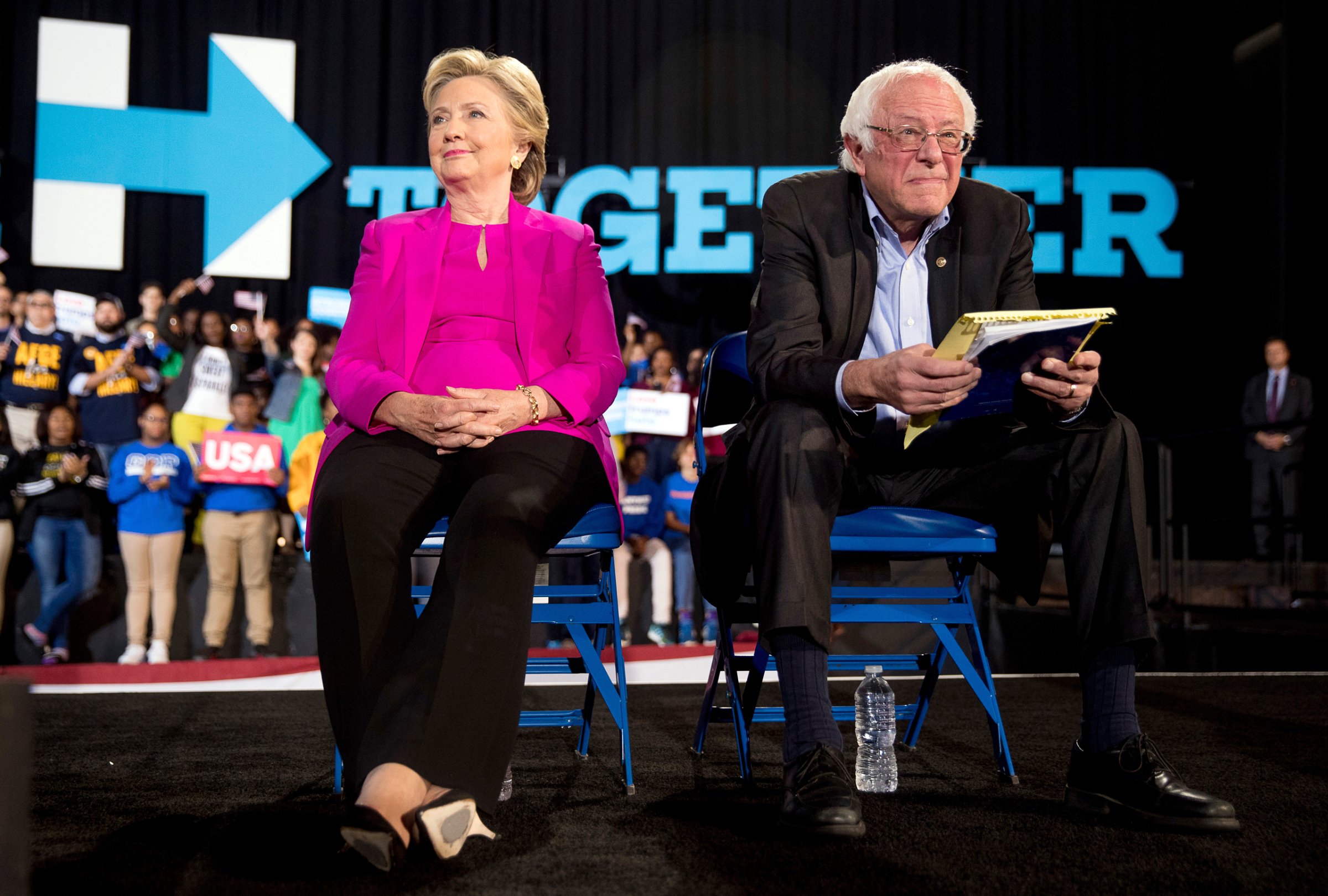
On Election Day, Senator Bernie Sanders earned the 2016 “Ralph Nader Award” for the Leftist Most Responsible for Helping Republicans Win the Presidency. True, Donald Trump cleverly exploited voters’ frustrations. And Hillary Clinton’s campaign in 2016 was as rigid and empty as it was when she lost in 2008. Still, Sanders helped Clinton lose. His insurgency pushed her too far left to prevent an effective re-centering in the fall, while goading her into wooing different constituencies rather than uniting the nation.
In fairness, Sanders ran a surprisingly effective campaign tapping the same anti-establishment fury Donald Trump stirred. Although Sanders and Trump are very different, their campaigns were not. Each treated Hillary Clinton as a compromised, Wall Street–worshipping, Establishment sellout. Both demonized Washington insiders and free trade, rather than tackling the real structural problem: the United States deindustrialized because Americans refuse to pay what it costs to hire American workers and instead buy cheaper imported products. As a result, just as Ralph Nader siphoned tens of thousands of votes on Election Day 2000 in Florida from Al Gore, causing the deadlock and George W. Bush’s victory, Bernie Sanders’ similar vampire effect enfeebled Hillary Clinton.
This dynamic followed a classic historical pattern. Sanders drew Clinton from the center toward the Democrats’ extreme flank. That shift paralleled Jimmy Carter’s leftward lurch when Ted Kennedy ran in 1980, and George H.W. Bush’s rightwing swerve when Pat Buchanan rebelled in 1992. Each time, the frontrunners felt forced to placate loyalists they should have been able to take for granted, while embracing extreme positions that haunted them during the general election campaign.
This year replayed that Insurgent’s Vampire Effect. Clinton expected to inherit the nomination without serious opponents. Joe Biden and John Kerry, each of whom sees a potential president whenever he looks in the mirror, didn’t run, deferring to the Clintons’ power in the party and to Hillary Clinton’s claim that it was “our time” as women to win the presidency—an appeal that, surprisingly, bored younger women.
As an independent, Sanders lacked such loyalty. His hip campaign addressed the displaced and disempowered, claiming Hillary Clinton was the problem not the solution. In response, Hillary Clinton channeled Walter Mondale in 1984, desperately appealing to different special interests. Characteristically, after winning Super Tuesday, she declared: “We have to defend all our rights—workers’ rights, and women’s rights, civil rights and voting rights, LGBT rights and rights for people with disabilities.” This pluralistic appeal failed to offer a unifying national mission. It illustrated Donald Trump’s complaint that Democrats were so busy kowtowing to minorities they neglected the white majority and the nation’s need for consensus.
Having catered to the millennial and minority sensibility in the spring, Hillary Clinton missed the mainstream, failing to recalibrate for the fall. This misread was most apparent in her neglect of her greatest political ally, Bill Clinton, and his legacy. In the 1990s, President Clinton shrewdly led from the center, forging a “Third Way” progressivism more balanced than the big-government, special interest group-oriented liberalism which Ronald Reagan and George H.W. Bush handily defeated in the 1980s. Clintonite centrism embraced free trade as bringing prosperity not exporting jobs. Clinton fought crime, framing it as threat to all Americans, especially blacks. Clinton reformed welfare to restore governmental credibility and recipients’ dignity. Clinton talked candidly about restructuring the economy while rebuilding traditional culture, because too many Americans felt they were “living in the funhouse.”
Pressed by the Sanders Sensation, intimidated by Black Lives Matter, even Bill Clinton backpedaled, apologizing for fighting crime and his centrist legacy. With no one explaining how bad crime was in the 1990s, how dysfunctional the welfare system was, how two-thirds of blacks supported both initiatives, Clinton’s legislation seemed draconian. Hillary Clinton became a doughnut candidate, sprinkling sweets to particular groups but lacking any core. That distortion made her the perfect foil for Donald Trump’s demagoguery.
Sanders liberals considered Clintonian centrism not liberal enough, not minority-sensitive enough, not pure enough. The result is a president-elect hostile to liberalism, unafraid of demonizing minorities and epitomizing a killer instinct that makes Clintonian triangulation look naïve. All this makes Bernie Sanders the Ralph Nader of 2016.
More Must-Reads from TIME
- Cybersecurity Experts Are Sounding the Alarm on DOGE
- Meet the 2025 Women of the Year
- The Harsh Truth About Disability Inclusion
- Why Do More Young Adults Have Cancer?
- Colman Domingo Leads With Radical Love
- How to Get Better at Doing Things Alone
- Michelle Zauner Stares Down the Darkness
Contact us at letters@time.com